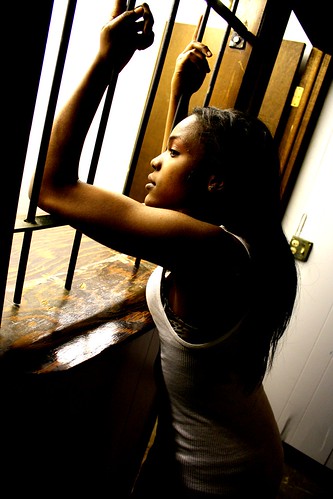 Solitary confinement. A harsh penalty, and purportedly one of last resort. The type of penalty reserved for hardened, adult criminals. Or so it seems on the surface…
Solitary confinement. A harsh penalty, and purportedly one of last resort. The type of penalty reserved for hardened, adult criminals. Or so it seems on the surface…
How would you react if told that solitary is often used for the most minor infractions, and the recipients are all too often female juvenile offenders. This is the subject of a recent piece on RH Reality Check by Yasmin Vafa of the Human Rights Project for Girls:
There is a growing body of evidence that demonstrates the severe psychiatric consequences of placing individuals, and particularly children in solitary confinement. Prisoners who have experienced solitary confinement have been shown to engage in self-mutilation at much higher rates than the average population. These prisoners are also known to attempt or commit suicide more often than those who were not held in isolation. In fact, studies show that juveniles are 19 times more likely to kill themselves in isolation than in general population and that juveniles in general, have the highest suicide rates of all inmates in jails.
Every year approximately 600,000 girls are arrested in the U.S. The majority of these girls are incarcerated for non-violent offenses such as truancy, loitering, running away, alcohol use, or violations of prior court orders for non-violent offenses. Evidence demonstrates that 73 percent of these girls are victims of some form of physical or sexual abuse. Many of them end up in these exact circumstances.
Despite all these facts, when girls in the juvenile justice system express evidence of or the desire to self harm, the typical response is to put them in solitary confinement. While these girls are being placed in solitary for their own protection, there is no consideration given to the fact that such practices deepen existing trauma. When subjected to isolation, these youth are often locked down for 23 hours per day in small cells with no natural light. This confinement can last several days, weeks or even months, which leads to severe anxiety, paranoia, and further exacerbation of mental distress. The ACLU has reported that in certain juvenile detention facilities, girls are restrained with brutal force and are ‘regularly locked up in solitary confinement — a punishment used for minor misbehaviors as well as for girls who express wanting to hurt themselves.’
This is an especially important topic because this week, the Senate Judiciary Subcommittee on the Constitution, Human Rights, and Civil Rights is holding their first-ever Congressional hearing on the issue of solitary confinement in U.S. prisons and jails. It is our distinct hope that we will see the subject of juvenile solitary confinement addressed in this hearing, as well as the other other issues faced by both juveniles and females incarcerated in the American prison system.









